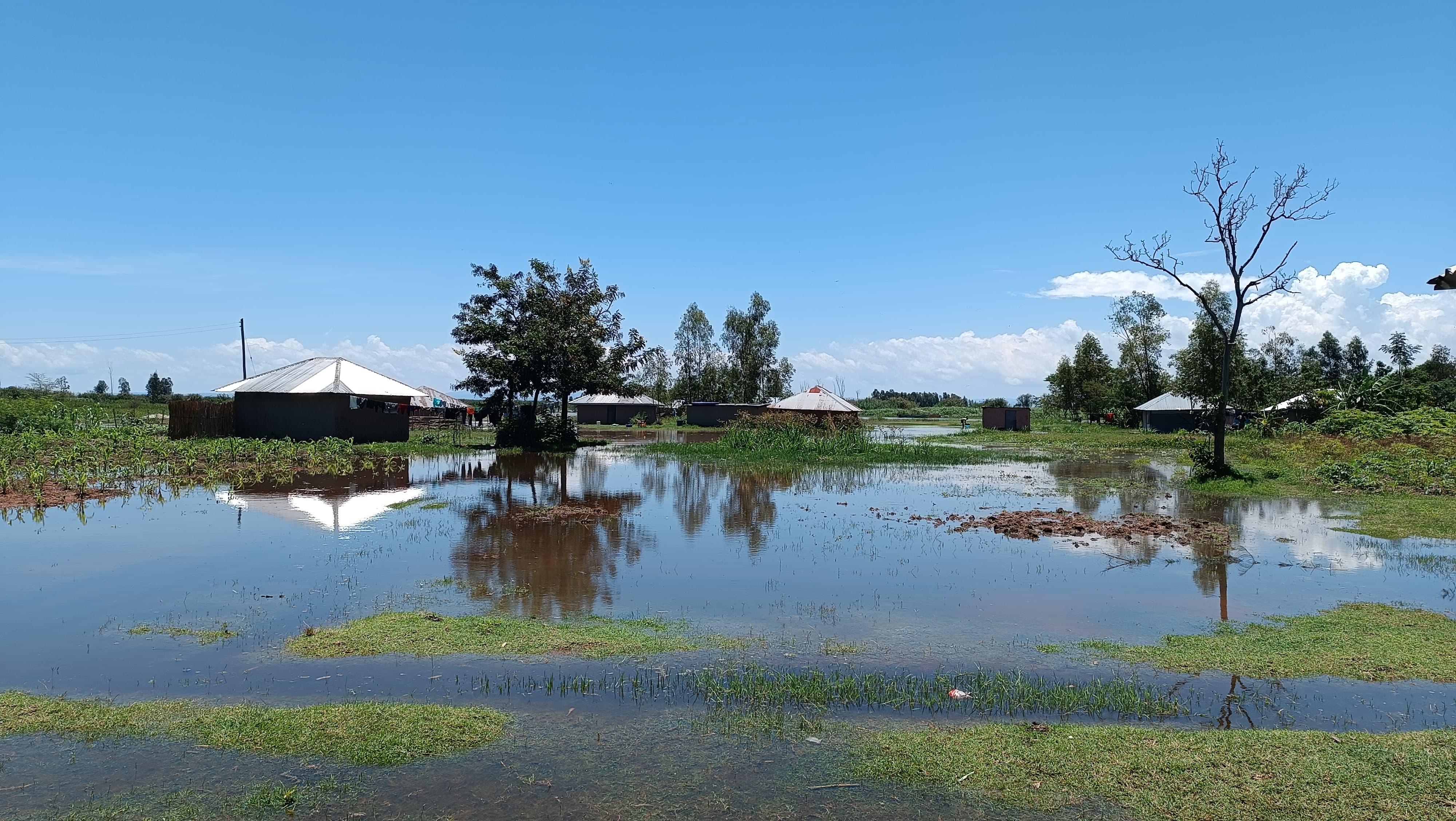- The ongoing perennial floods also pose a significant threat to the submerged lands, which have already been affected by the extreme sand harvesting done by the residents themselves.
Wang’chieng’s location is at risk of becoming extinct following the surge of Lake Victoria, which has claimed a large percentage of the residents' lands.
The ongoing perennial floods also pose a significant threat to the submerged lands, which have already been affected by the extreme sand harvesting done by the residents themselves.
Wang’chieng’ has also been affected by climate change, making the area experience adverse elnino and lanina yearly.
During the dry season, the upper parts of Wang’chieng experience prolonged droughts that turn the lands yellow. At this time, the residents take advantage of the absence of rain to exercise their sand mining skills on the terrain.
When rain finally comes, affected mining sites are first filled with water, which poses different threats to the community around the mining sites. For instance, stagnant water accommodates an outbreak of malaria.
Read More
Today, over 1700 people have been displaced by the ongoing rains, which have caused floods. Their homes have been swept away by the raging floods, driving them into cold camps.
Addressing the media during the relocation process from their flooded homes to the campsite, George Oburu, Assistant Chief Kobala Sub Location in Wang’chieng Location, said four villages had been totally flooded.
“Four villages have been affected in my ward namely , Komenya, Kowuor Agendo and Kamwara displacing a total of 540 homes, we have been alerted by the metrological department that the rains will continue and that’s a warning that more homes will be swept away,” he said.
According to Willis Omullo, a resident of Wang’chieng’s location and a climate change ambassador, his location experienced two tragic phenomena that have left the residents displaced.
We are experiencing the surging of Lake Victoria, which has swallowed a large percentage of our homesteads, including my home. We are also experiencing floods caused by heavy downpours and broken banks of River Miriu,” Mr Omullo lamented.
Mr Omullo also shared that more than half of the population have lost their homes and farmlands to the hungry, swelling lake that has swallowed their homes and farms.
“In the coming days we will starve because our homes and farms are now part of the lake, we have become refugees in our own land because we no longer have homes, no farms and no livestock,” Mr Omullo reiterated.
Mr Omullo also said that extreme sand harvesting with the diking along the river Sondu Miriu in Wang’chieng is one of the contributors to the disasters, as areas of mining are the first to fill when the river overflows.
“Issues of diking along River Sondu Miriu needs to be addressed, this is a sinking village and a lot of unsustainable and wanton sand harvesting has been done, majority of the sand harvesting sites are filled up,” said Mr Omullo.
Margaret Aoko, a resident of Chuowe Beach in Kobala Sub Location, a widow and a mother of 8, shared her fear as a young widow that her home had been swept away and she fears that she will never see her husband’s grave again.
“I recently buried my husband and right now my home is in the middle of the lake, I am worried that my husband’s body might not rest in peace, I have been left to take care of my eight children without a home or a farm to call mine,” Aoko lamented.
The agony of the sinking village has also affected Winsenleto Okuku, a resident of Chuowe whose family has experienced human-wildlife conflict following an invasion of hippos in his home.
“My home has also been marooned by the floods and I almost lost my two children to hippos, the two hippos that invaded my home were looking for vegetation to feed on since their grazing lands have also been affected by the floods,” said Mr. Okuku.
As Mother Earth continues to fight back, many people are still going to be displaced; there will still be many cases of human-wildlife conflict in the sinking village.
The residents call upon the government to respond quickly to disasters and provide permanent solutions to redeem the village's residents from harsh climate changes.










